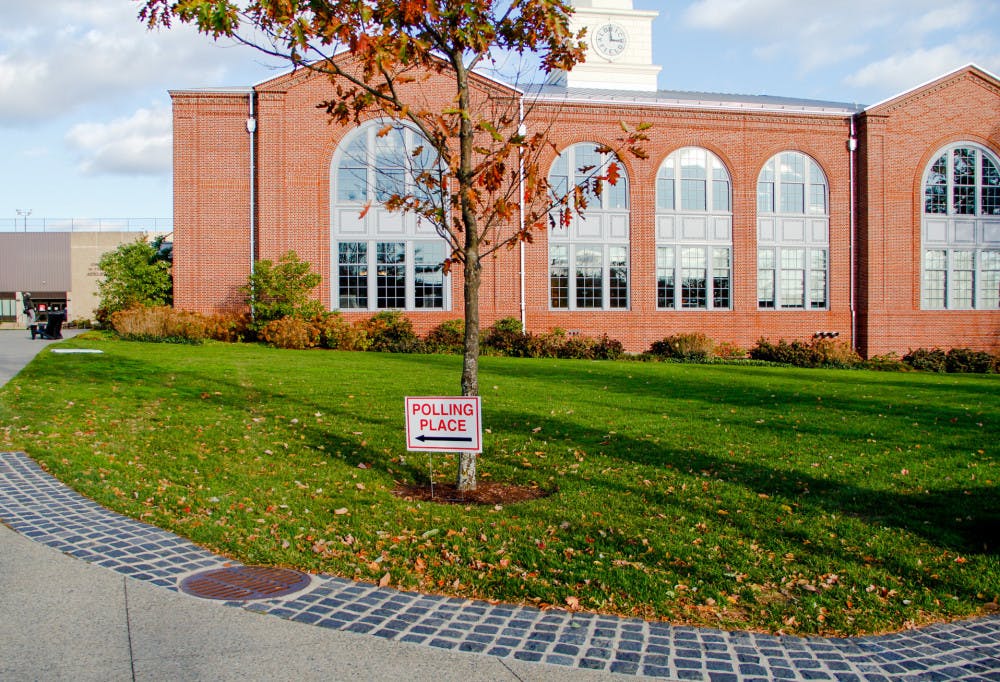For students like Renee Clairvoyant ’23, the uncertainty of last week’s election made it difficult to focus. “It was like my chest felt heavy,” Clairvoyant said. “I kept checking the maps every five minutes. I couldn’t really think about anything else.”
As the election dominated thoughts, discussion and news coverage outside of the classroom, professors were tasked with meeting student needs without espousing political views or falling behind on their course agenda.
Faculty should not discuss politics in class unless it is directly related to the content of the course, according to Dean of the Faculty Kevin McLaughlin. “We are not a political organization,” he said. “We are an educational institution.”
McLaughlin said the University rarely receives complaints over professors expressing political views in class. But he acknowledged that there may have been a “temptation for faculty to express their views about the presidential election.” He said that the University makes an effort to remind faculty about the policy.
In addition to avoiding discussion of their own political ideologies, McLaughlin added that professors also have a responsibility to ensure that students only discuss politics in class when relevant.
“The faculty member who's responsible for that classroom space really has the authority and the responsibility to try to prevent students from turning the classroom into a political venue,” he said.
One reason for such a policy, McLaughlin explained, is that faculty are grading students’ work. “It shouldn't ever seem that a student has to embrace the faculty members political position” to receive “a better grade in the class.”
Still, many faculty and teaching assistants alluded to the election or acknowledged the stress that many individuals were experiencing. “Things appear to be sane and stable enough to have a class meeting tomorrow,”one professor posted to Canvas on Election Day. In another class, a TA offered office hours for students feeling anxious as election results rolled in: “Feel free to drop by, chat or just hang out.”
Adam Shepardson ’22 said that while his professors were generally very vocal about voting in the election, they did not speak about the results.
In some political science classes, however, discussions about the election were essential to the content of the course. Professor of Political Science Richard Arenberg, who teaches POLS 1120: “Campaigns and Elections,” said he devotes the beginning of every class for students to comment on and ask about the current election and its implications.
Arenberg said that remaining bipartisan during these discussions has posed a unique challenge throughout this election cycle. “From an objective basis, from the perspective of a political scientist, there have been a number of aspects of the (Trump) administration … that have been fairly subject to criticism,” he said.
Still, Arenberg believes his class has “been an environment where students who want to express views and want to engage in discussion feel comfortable doing that.”
Drayton Nabers, an English professor who teaches courses on political history, said he tries to “make it possible for people to bring up current affairs if they seem relevant to what we're talking about.” But Nabers found that during Election Week that students were generally relieved to discuss political themes of the course without bringing up the election.
Nabers also said that he will “inevitably” allude to his general political leanings when teaching historical politics, but he tries to avoid partisanship when discussing the “immediate fray of back and forth partisan politics.”
While the University discourages professors from discussing their political views in class, they did ask professors to move exams that were scheduled for the day after the election. Ultimately, though, faculty were in charge of decisions regarding exam times, McLaughlin said.
Arenberg said he has always worked on a case-by-case basis with students who are unable to complete assignments by the deadline. But the pandemic, more than the election, has necessitated greater flexibility for students.
Still, Shepardson said that his professors provided even more flexibility during Election Week than the semester as a whole, with one professor expanding the time window to complete an exam and another pushing back the deadline for a paper.
Professor of Philosophy Felicia Nimue Ackerman said that she always provides flexible deadlines, regardless of the national context. “People do not have to barter details about their personal lives in return for flexible deadlines,” she said. “I stay out of my students' emotional lives.”
While Clairvoyant believed that Trump’s reelection could have been detrimental for themself and others, they were glad that professors generally limited any discussion of the election. “The election was a big deal for everyone. But if we had gone into a discussion about who we voted for, I wouldn’t have been comfortable,” they said.

ADVERTISEMENT




